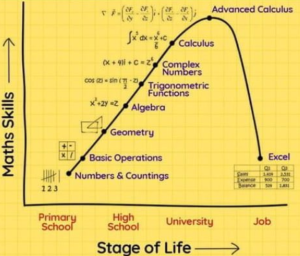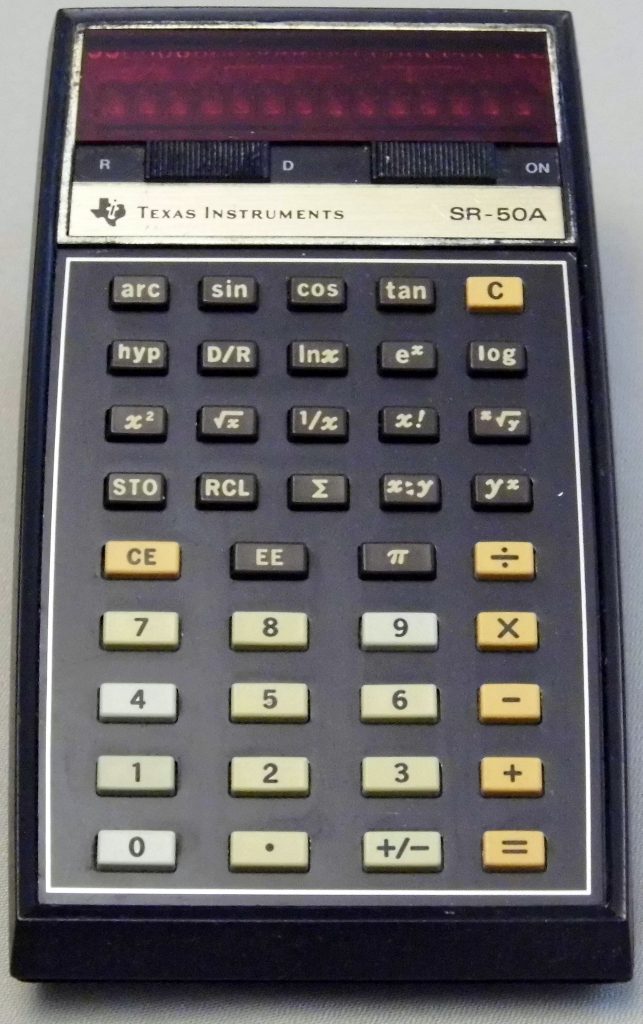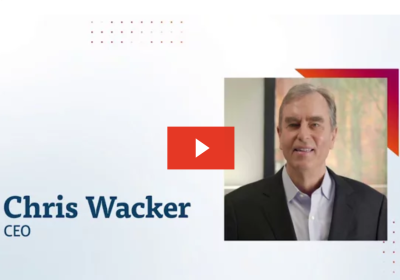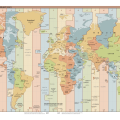 “I’m no good at Math.” We’ve all heard this said and have probably said it ourselves one time or another. But do we ever ask: why is math so intimidating? It’s just abstract representations of real-world things. The metadata for the everyday. I don’t think the numbers are the problem. It’s the focus we place on understanding how math works rather than simply working with math.
“I’m no good at Math.” We’ve all heard this said and have probably said it ourselves one time or another. But do we ever ask: why is math so intimidating? It’s just abstract representations of real-world things. The metadata for the everyday. I don’t think the numbers are the problem. It’s the focus we place on understanding how math works rather than simply working with math.
Two plus two equals four turns into I’m no good at math pretty quickly when we move from the 3, 4, 5, triangle tradesmen master in minutes to trying to understand the complicated compilations of if-thens Pythagoras used to prove it. Many a high school geometry student’s struggles with those proofs led to a career in the building trades.
This has me wondering: Do we really need to understand those if-thens anymore? There are few skills being taught in K-12 math classes that software does not take over as soon as we graduate. (See graphic above.) Outside of all the theorizing, math is a tool allowing us to make sense, and subsequently better use, of the world around us. We do not need to know how these tools work, we just need to know how to work with them.

Nobody has to be good in math, unless they really are good in math. At the same time we can all be really good with math. When Texas instruments invented the hand-held calculator old school math mavens presaged the dumbing down of a generation that will be unable to add two plus two, let alone find their way to E=MC2. Fifty years later software has replaced the TI SR-50 with Excel spread-sheets which even spare us the process of punching in the calculations. Clearly progress has not suffered. Quite the opposite.
There are certainly benefits to understanding how the processes we work with actually work but how much effort do we really want to devote to it. Particularly when so many struggle where others prevail. Unlike computers, human minds have limited storage space. Why dedicate any of it to understanding how math works when we can apply our unlimited creativity to making math work. Indeed, if we want to continue to progress can we really afford to?
It is not a great leap of logic to extrapolate this solution to humanity’s math problem to what we here at Laserfiche do for a living. For 30 years we’ve been building tools letting our customers get the most from their data. Most don’t know how those tools work. I learn only as much as I have to. But I’m ever more impressed with our customer’s creativity working with the tools we make. Let’s apply the same expediency to math instruction. That way those who are no good at math can continue to leverage the skills of those who are for the benefit of us all.









